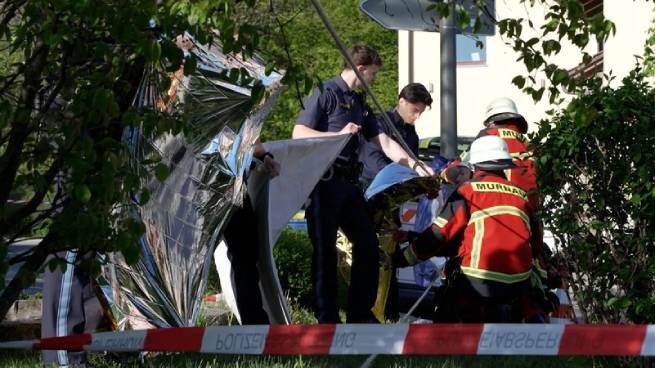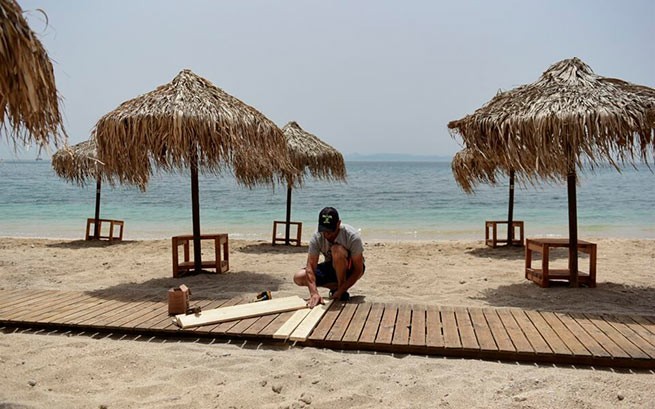Millions of Ukrainians have dispersed to different countries of the world because of the war. Most of them left their home because of the danger of war and are now in a difficult psychological state.
“Those who travel simultaneously experience a complex range of feelings – fear, grief, anxiety, shame, guilt, insecurity, impotence, pity, anger … Emotions can replace each other, flooding both adults and children. All such emotions are natural” – explains the psychologist Svetlana Roiz. She assures that these feelings are natural and should be accepted.
- Sorrow
When a person gets into a relative sense of security, he exhales, the tension subsides. This can manifest itself not only in mourning for the victims, but also in the place of residence, property, part of life, memories, hopes, etc. This can manifest itself in tears, a feeling of powerlessness or guilt, fading. - Aggression
Sometimes the manifestation of a kind of aggression can be directed at those who now provide security and care. Roiz gives an example: in the same way, a child who was without a mother during the day, after her return, directs all his negative emotions to her.
“This can be incomprehensible, annoying, painful for volunteers and everyone who gives a hand. Please remember that this strange ingratitude and anger are, unfortunately, the consequences of trauma and a manifestation of pain. Please do not take negativity personally”
“Please, those who are now being given a helping hand, those who are now accepting help: do not bite this hand,” the psychologist urges.
Do not give in to provocations!
You are now at peace. The war is far away. We are well aware that there, in the homeland, there are relatives and friends. Perhaps your loved ones are taking part in the hostilities, and you have a reason to hate the aggressor. But this is a different country. No need to transfer your pain and hatred to the locals, even if they speak Russian and remind you of your tragedy.
Do not succumb to the provocations of radical people. When you get involved in a confrontation with local Russian speakers, you will most likely come across representatives of immigrants from the former USSR, Greeks or representatives of other nationalities who have lived here for decades and are mostly Greek citizens. Any conflict between refugees and citizens of a country that has had a numerous problems with migrantsthe police will consider NOT in favor of “strangers”.
Judging by the development of the situation with the war in Ukraine, you will be abroad for quite a long time. Use the advice of representatives of the local diaspora, but draw your own conclusions.
Those who help refugees to adapt
It is important for everyone who helps to take care of themselves so as not to burn out under the weight of suffering. It is necessary to rest, not to merge with the feelings of the victims. “Every time we see, hear, empathize with another, we get secondary traumatization. This is a very big load,” the specialist explains.
It is important to understand the difference between empathy and pity:
- Sympathy
Out of compassion, we help a person, but we do not allow him to enter the state of the victim, we do not support the state of helplessness and permissiveness. - A pity
Out of pity – thinking that he (she) is poor, we can make a disabled person out of a person, take away those forces that he already has little. Behind every person we must see the strength. It can at least some of its part influence life. Helplessness is dangerous. What can a person do?
What to say if someone behaves inappropriately:
- I really sympathize, I see how difficult it is for you, but I do not allow this to behave.
- Our rules are these.
- I am hurt and scared, I miss you with you – but I do not allow such behavior.
- It is important for you to do this.
- This is where I can help you, and this is important for you to do. First this, then that.
Psychological support
Those who have traveled to a safe place or abroad may be haunted by survivor syndrome. This feeling of guilt for being in more favorable conditions. “It is important to remember that the most important thing is life. Each of us is in his place. Always. On his front. Both his life and the lives of children are an absolute value,” explains the psychologist.
The process of adaptation to new conditions has its own dynamics. G. Triandis (Triandis HC Culture and Conflict) described an adaptation scheme consisting of five stages. To describe them simply – good, worse, bad, better, good
- OKAY:
emotional upsurge, enthusiasm, spiritual revival, high hopes. Finally a sense of security, support and freedom. It is important to save energy and resources. Gradually master a new place. - WORSE:
feeling of discomfort, mutual misunderstanding with local residents and rejection by them. Culture shock*. This can lead to disappointment and longing, confusion. The sense of loss intensifies. It is important to observe the locals, learn the rules, etiquette, traditions, language, try to communicate not only with fellow countrymen, if possible. And the community – to include in common life, invite guests, talk about the features of the rules and traditions. It is important to express gratitude to those who care. And get involved in helping. - POORLY:
at this stage, melancholy may increase and affect the lack of improvement. Confusion. Inclusion in external processes, any own actions are very important, at this stage the support of the host community, assistance in adaptation is critical. Acquaintances, involvement in work. An inventory of one’s own skills and knowledge is important: literally write down what I can do, what I can do. It is important to ask for help and offer help. And express gratitude. - IMPROVEMENT: a sense of confidence returns, it becomes possible to influence what is happening. Optimism, a sense of satisfaction returns. It is important to record any progress. And make plans
- OK. At this stage, we feel steadfast, in contact with our resources and capabilities. We build and implement plans for the future.
*Culture shock: a term proposed by the American anthropologist K. Oberg. When a person finds himself in new conditions, his sensory, symbolic, verbal and non-verbal systems are usually not recognized, they turn off. This is a state when I cannot understand what they want from me, how life works, how to control and predict the behavior of others – this causes anxiety and panic. This happens until we explore the features, the “cultural code” of other people, we do not recognize their habits, we do not enter into closer contact.
- Therefore, it is very important, as soon as the forces appear, to get in touch with others. It is important to recognize the place, people, culture, learn the language, be interested in history.
- Respect the place where you camewhile staying in touch with their culture and identity.
- It is important to buy, take with you, prepare – books in your native language, perhaps make a selection of fairy tales and songs.
This is what will help create a bridge between the inner and outer reality, give a sense of support on the root. And on the way – to read about the city, the country we are going to. Go on excursions.
What is important for volunteers hosting and moving:
- physical safety, what determines vitality – it is important for children and adults to know where they will live, what and where to eat, where the toilet is, where they will sleep, where they can walk (this is literally a tour of a new area, a new building, all the premises ), the resources available to them. At the first stage, personal resources are not enough.
- Rules – do’s and don’ts. Where you can, where you can’t. What traditions are supported, what regime.
- What can he do himself – suggest actions – how a person can take care of himself – cook food, clean, help volunteers, help nearby. Any action beyond the limit of helplessness returns power.
- To help build communication: to get to know and acquaint, to involve in the “life of society”, to tell and offer to participate in existing traditions, to create common rituals, to give instructions and maintain success in them. Talk about culture, help in learning the language. Ask to talk about the culture of their people (to maintain contact with their culture and identity).
- Psychological support is carried out in parallel (for children, paints, felt-tip pens, chalk pencils, plasticine, what can be used to make houses, small toys, multi-colored paper, pillows, fabrics are needed here).
It is important for children:
- Daily schedule.
- Maintaining normal life and learning new rules.
- If possible, buy them books in their native language, in extreme cases, a tablet will do, where you can download them.
- Help to establish contacts with those who live nearby.
- Listen, answer questions, be prepared for the fact that the questions will be repeated, that the child will blame the parents for what happened, there can be any emotional reactions.
- Let them feel what they have now hiswhat they can say my my.
- Take new photos on your phone (tablet) and explore the world around you.






More Stories
UK: controversial bill on deportation of migrants to Rwanda passed
Chaos in Paris due to Afghan demonstration
Why only a few Ukrainian refugees in Germany found work (video)